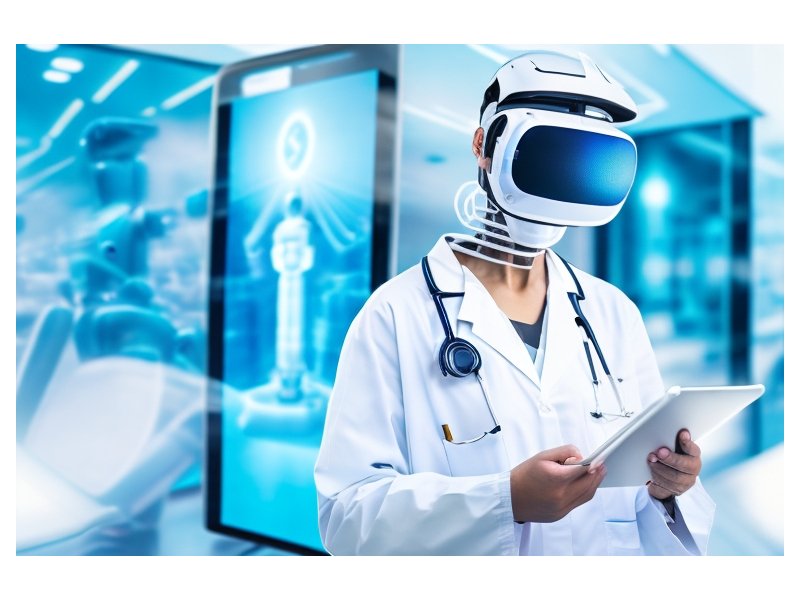
Introduction:
The field of healthcare is undergoing a significant transformation, thanks to the rapid advancements in technology. Among the most promising technologies making a mark in the healthcare industry are artificial intelligence (AI), robotics, and virtual reality (VR). These emerging technologies hold immense potential to revolutionize the way we approach medicine, patient care, and healthcare delivery. In this blog post, we will delve into the exciting possibilities offered by AI, robotics, and virtual reality in healthcare and the significant impact they are poised to have on the future of medicine.
Artificial Intelligence in Healthcare:
AI has made remarkable strides in recent years, showcasing its potential to augment healthcare professionals and improve patient outcomes. Machine learning algorithms and predictive analytics have the ability to analyze vast amounts of medical data and identify patterns that may not be apparent to humans. This enables healthcare providers to make more accurate diagnoses, personalize treatment plans, and even predict the likelihood of disease onset.
Additionally, AI-powered virtual assistants are being employed to streamline administrative tasks, enhance patient interactions, and reduce physician burnout. Natural language processing allows patients to interact with virtual assistants, facilitating efficient data collection and easing the burden on healthcare staff.
Robotics in Medicine:
Robotics has transformed various industries, and healthcare is no exception. Robotic systems are being utilized in surgical procedures, enabling more precise and minimally invasive interventions. With advanced robotic-assisted surgery, surgeons can achieve greater dexterity and accuracy, leading to improved patient outcomes, reduced complications, and faster recovery times.
Beyond the operating room, robots are being deployed in healthcare settings to assist with tasks such as patient monitoring, medication delivery, and rehabilitation. These robots can operate 24/7, reducing the strain on healthcare staff and providing continuous care, ultimately enhancing the overall patient experience.
Virtual Reality for Therapeutic Applications:
Virtual reality technology, once associated primarily with gaming and entertainment, is now finding its way into the healthcare realm. VR is being harnessed as a powerful therapeutic tool for pain management, mental health treatment, and rehabilitation.
In the realm of pain management, VR has shown promising results by distracting patients from acute or chronic pain, reducing the need for opioids or other strong pain medications. Furthermore, VR-based simulations are being used to create immersive environments for patients with anxiety disorders or phobias, enabling exposure therapy in a controlled and safe manner.
Virtual reality is also being incorporated into physical therapy and rehabilitation programs. By immersing patients in virtual environments, it can enhance motivation, engagement, and functional recovery. For instance, stroke patients can use VR to practice mobility exercises or regain motor skills in a stimulating and interactive manner.
The Future is Here:
The potential applications of AI, robotics, and virtual reality in healthcare are vast and continually evolving. As these technologies continue to advance, they hold the promise of revolutionizing healthcare delivery, improving patient outcomes, and reducing costs.
However, it is important to acknowledge that alongside these advancements come ethical considerations and challenges. Ensuring data privacy and security, addressing the potential for bias in AI algorithms, and maintaining the human touch in healthcare are vital aspects that need to be carefully navigated.
In conclusion, AI, robotics, and virtual reality are ushering in a new era of possibilities in healthcare. These technologies have the potential to transform how we diagnose, treat, and manage diseases, as well as enhance patient experiences. As we move forward, it is crucial for healthcare professionals, researchers, and policymakers to collaborate and harness the power of these emerging technologies responsibly and ethically, ultimately creating a future where technology and compassionate care coexist harmoniously for the benefit of all.
Share This News